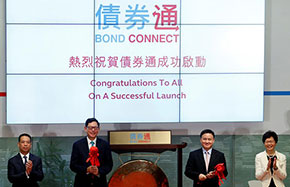CEIBS shifts focus to executive education
 |
|
Li Mingjun, president of CEIBS, believes the school will cultivate more international talent to help Chinese companies expand overseas. [Photo provided to China Daily] |
The lack of international talent is one of the biggest challenges for Chinese companies expanding into overseas markets, according to a survey on China businesses conducted by the China Europe International Business School or CEIBS.
"A lot of their mistakes can be traced back to a lack of talent, a lack of employees who understand how to do business in the new markets they are trying to break into," said Professor Li Mingjun, president of CEIBS. "The world has changed and Chinese business executives have to change along with it."
He noted that in the 1980s, Chinese companies doing foreign trade only needed to focus on low-cost production as professional foreign trade agencies took care of everything else. In contrast, companies making overseas investments today need to handle everything by themselves, from setting up joint ventures to making acquisitions or green-field investments. As a result, talented professionals who are familiar with such matters are urgently needed.
"Language is just one of the barriers when it comes to making investment decisions in a foreign market. There is also a need to understand the business environment, law and culture in a foreign country. I think this is very difficult for most Chinese companies because they lack the right talents," he said.
One of the solutions to this manpower problem lies in CEIBS. Co-founded by the Chinese government and the European Union in 1994, the school began by mostly grooming talent for MNCs working within China. Today, as the school itself has changed to a more international focus with campuses across three continents, CEIBS has turned its attention to educating business executives who can lead in and outside of China. This includes executives from Chinese companies that already have or plan to have operations beyond China's borders. The 2013 launch of the CEIBS Center for the Globalization of Chinese Companies is part of that initiative.
From September, the school will offer an executive education course called "Core Talent for Chinese Enterprises". It helps Chinese entrepreneurs gain deeper insight into the international economy, foreign cultures, accounting knowledge for overseas investment and leadership. It also aims to help Chinese companies get a clear picture of globalization and how to control risk during mergers and acquisitions.
"We have seen many Chinese companies succeed in their overseas acquisitions; we have also seen others fail. We found that many companies actually paid too high a price as they did not have enough information about the business, risk control and local business environment," said Li.
"In addition, political stability is another area that Chinese entrepreneurs aren't very familiar with. Because of this, CEIBS is looking to introduce classes that touch on international relations and national interests."
In order to be closer to Europe's business markets, CEIBS set up its Zurich campus in 2015. Li said that the school is planning to organize forums in Europe every year. This year, events will be held in five cities including London and Paris this month, Munich and Warsaw in September and Zurich in October.
"It is impossible to solve all problems through a course at business school, but entrepreneurs can at least have a complete picture of the situation and provide some possible solutions through their studies," Li said.
The survey by CEIBS also found that 36 percent of companies said they considered overseas expansion as their key objective, while 42 percent said they saw it as "very important" to their future.
China's outbound direct investment or ODI has been increasing since 2000 and it accelerated more quickly following the financial crisis in 2008. Between 2009 and 2014, the number of ODI activities per year rose from 38 to 113, according to research of Zero2IPO Group. In 2016, China's non-financial ODI soared 44.1 percent year-on-year to $170 billion, according to data from the Ministry of Commerce.
In the past, only big State-owned companies played a key role in overseas investment. In 2013, about 60 percent of Chinese manufacturing companies with overseas investments were private entities. While Asian countries were once the major investment destinations of Chinese private companies, the focus has now shifted to the United States and Europe.



















